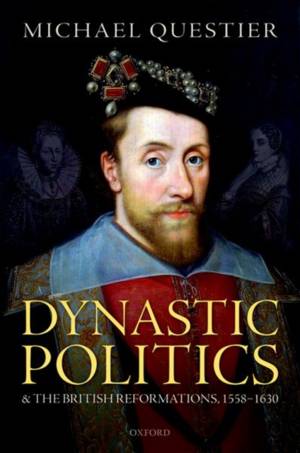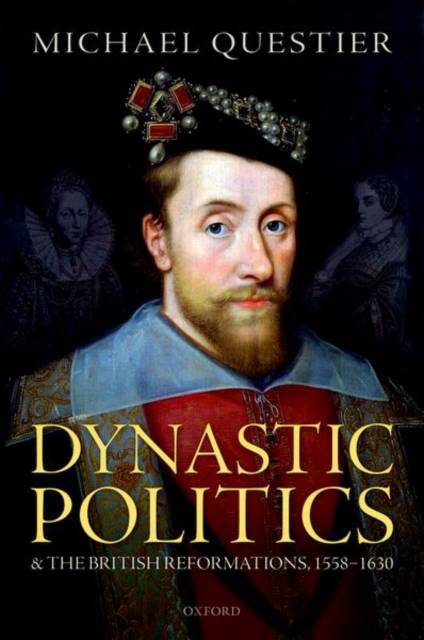
Je cadeautjes zeker op tijd in huis hebben voor de feestdagen? Kom langs in onze winkels en vind het perfecte geschenk!
- Afhalen na 1 uur in een winkel met voorraad
- Gratis thuislevering in België vanaf € 30
- Ruim aanbod met 7 miljoen producten
Je cadeautjes zeker op tijd in huis hebben voor de feestdagen? Kom langs in onze winkels en vind het perfecte geschenk!
- Afhalen na 1 uur in een winkel met voorraad
- Gratis thuislevering in België vanaf € 30
- Ruim aanbod met 7 miljoen producten
Zoeken
€ 107,95
+ 215 punten
Omschrijving
Dynastic Politics and the British Reformations, 1558-1630 revisits what used to be regarded as an entirely 'mainstream' topic in the historiography of the later sixteenth and early seventeenth centuries - namely, the link between royal dynastic politics and the outcome of the process usually referred to as 'the Reformation'. As everyone knows, the principal mode of transacting so much of what constituted public political activity in the early modern period, and especially of securing something like political obedience if not exactly stability, was through the often distinctly un-modern management of the crown's dynastic rights, via the line of royal succession and in particular through matching into other royal and princely families. Dynastically, the states of Europe resembled a vast sexual chess board on which the trick was to preserve, advance, and then match (to advantage) one's own most powerful pieces. This process and practice were, obviously, not unique to the sixteenth and seventeenth centuries. But the changes in religion generated by the discontents of western Christendom in the Reformation period made dynastic politics ideologically fraught in a way which had not been the case previously, in that certain modes of religious thought were now taken to reflect on, critique, and hinder this mode of exercising monarchical authority, sometimes even to the extent of defining who had the right to be king or queen.
Specificaties
Betrokkenen
- Auteur(s):
- Uitgeverij:
Inhoud
- Aantal bladzijden:
- 518
- Taal:
- Engels
Eigenschappen
- Productcode (EAN):
- 9780198826330
- Verschijningsdatum:
- 31/03/2019
- Uitvoering:
- Hardcover
- Formaat:
- Genaaid
- Afmetingen:
- 152 mm x 236 mm
- Gewicht:
- 861 g

Alleen bij Standaard Boekhandel
+ 215 punten op je klantenkaart van Standaard Boekhandel
Beoordelingen
We publiceren alleen reviews die voldoen aan de voorwaarden voor reviews. Bekijk onze voorwaarden voor reviews.









